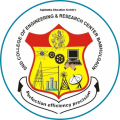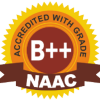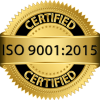Program Educational Objectives(PEO)
- PEO1: Possess strong fundamental concepts in mathematics, science, engineering and technology to address technological challenges.
- PEO2: Possess knowledge and skills in the field of Computer Science & Engineering and Information Technology for analyzing, designing and implementing complex engineering problems of any domain with innovative approaches.
- PEO3: Possess an attitude and aptitude for research, entrepreneurship and higher studies in the field of Information Technology.
- PEO4: Have commitment to ethical practices, societal contributions through communities and life -long learning
- PEO5: Possess better communication, presentation, time management and team work skills leading to responsible & competent professionals and will be able to address challenges in the field of IT at global level
Program Educational Objectives (PEOs)
The Program
Educational Objectives for the BE Electrical undergraduate program are expertise,
engagement, learning, leadership and teamwork.
Graduates, within four years of graduation, should demonstrate
- PEO-1. Expertise and use it for problem solving in analysis & design of electrical system.
- PEO-2. Engagement in the engineering profession or other professional careers with high human values.
- PEO-3. Lifelong learning and adapting to a constantly changing field through graduate work, professional experience and self-study.
- PEO-4. Leadership and initiative to ethically advance professional and organizational goals and facilitate the achievements of others.
- PEO-5. Teamwork commitment for working with others of diverse cultural and interdisciplinary backgrounds.
Program Outcomes (POs)
Engineering Graduates will be able to:
PO-1 Engineering knowledge: Apply the knowledge of mathematics, science, engineering fundamentals, and an
engineering specialization to the solution of complex engineering problems.
PO-2 Problem analysis: Identify, formulate, review research literature, and analyze complex engineering problems
reaching substantiated conclusions using first principles of mathematics, natural sciences, and engineering sciences.
PO-3 Design/development of solutions: Design solutions for complex engineering problems and design system
components or processes that meet the specified needs with appropriate consideration for the public
health and safety, and the cultural, societal, and environmental considerations.
PO-4 Conduct investigations of complex problems: Use research-based knowledge and research methods including design of
experiments, analysis and interpretation of data, and synthesis of the information to provide valid conclusions.
PO-5 Modern tool usage: Create, select, and apply appropriate techniques, resources, and modern engineering and IT tools including
prediction and modeling to complex engineering activities with an understanding of the limitations.
PO-6 The engineer and society: Apply reasoning informed by the contextual knowledge to assess societal, health, safety,
legal and cultural issues and the consequent responsibilities relevant to the professional engineering practice.
PO-7 Environment and sustainability: Understand the impact of the professional engineering solutions in societal and
environmental contexts, and demonstrate the knowledge of, and need for
sustainable development.
PO-8 Ethics: Apply ethical principles and commit to professional ethics and responsibilities and norms of the engineering
practice.
PO-9 Individual and team work: Function effectively as an individual, and as a member or leader in diverse teams, and in multidisciplinary settings.
PO-10 Communication: Communicate effectively on complex engineering activities with the engineering community and
with society at large, such as, being able to comprehend and write effective reports and design documentation, make effective
presentations, and give and receive clear instructions.
PO-11 Project management and finance: Demonstrate knowledge and understanding of the engineering and management principles and
apply these to one’s own work, as a member and leader in a team, to manage projects and in multidisciplinary environments.
PO-12 Life-long learning: Recognize the need for, and have the preparation and ability to engage in independent and life-long learning
in the broadest context of technological change.
Program Specific Outcomes (PSOs)
PSO-1 An Ability to design, analyze and control various parameters of Electrical Power System.
PSO-2 An ability to apply knowledge, engineering skills and problem solving techniques in Electrical Machines, Power System
& Control System.PO-8 Ethics: Apply ethical principles and commit to professional ethics and responsibilities and norms of the engineering practice.
PEOs, PSOs & POs – Department of Mechanical Engineering
Program Educational Objectives (PEOs):
PEO1 To prepare mechanical engineering graduates with an outstanding knowledge of mathematical, scientific, engineering, technology, management, humanities and various other interdisciplinary subjects for a successful career.
PEO2 To equip students with modern tools, technology and advanced software’s for deliberating engineering solutions.
PEO3 To equip students with broad based knowledge to support the service industries, economic development and to address social and engineering challenges of the nation.
PEO4 To inculcate students with leadership skills with high level of integrity and ethical values for team building and team work.
Program Specific Outcomes (PSOs):
PSO-1 Our graduate engineers will apply all the basic principles of mechanical engineering required in both private and public sector organizations. They can contribute to all national level research projects viz DST, SERB, CSIR,DRDO etc.
PSO-2 We produce graduate engineers specialized in Design Engineering.
PEOs,
PSOs & POs – Department of Mechanical Engineering
Programme
Educational Objectives (PEOs):
PEO1 To prepare mechanical engineering graduates
with an outstanding knowledge of mathematical, scientific, engineering,
technology, management, humanities and various other interdisciplinary subjects
for a successful career.
PEO2 To equip students with modern tools,technology
and advanced software’s for deliberating engineering solutions.
PEO3 To equip students with broad based knowledge
to support the service industries, economic development and to address social
and engineering challenges of the nation.
PEO4 To inculcate students with leadership skills
with high level of integrity and ethical values for team building and team
work.
Programme
Specific Outcomes (PSOs):
PSO-1 Our graduate engineers will apply all the basic principles of mechanical engineering required in both private and public sector organizations. They can contribute to all national level research projects viz DST, SERB, CSIR,DRDO etc.
PSO-2 We produce graduate engineers specialized in
Design Engineering.
PSO-3 Our students are well equipped with industrial
management skills, and interdisciplinary technologies
Program
Outcomes (POs):
PO1.
Engineering Knowledge: Apply knowledge of mathematics, science and engineering
fundamentals and Production and Industrial Engineering specialization to the
solution of complex Production and Industrial Engineering problems.
PO2. Problem Analysis: Identify, formulate, research literature and analyze complex Production and Industrial Engineering problems reaching substantiated conclusions using first principles of mathematics, natural sciences and engineering sciences.
PO3. Design/ Development of Solutions: Design solutions for complex Production and Industrial Engineering problems and design system components or processes that meet specified needs with appropriate consideration for public health and safety, cultural, societal and environmental considerations.
PO4. Conduct investigations of complex Production and Industrial Engineering problems using research-based knowledge and research methods including analysis, interpretation of data and synthesis of information to provide valid conclusions.
PO5. Modern Tool Usage: To apply appropriate techniques, resources and engineering and IT tools for modeling of different Production and Industrial Engineering problems with an understanding of the limitations.
PO6. The Engineer and Society: Apply contextual knowledge to assess societal, health, safety, legal and cultural issues and the consequent responsibilities relevant to professional engineering practice.
PO7. Environment and Sustainability: Understand the impact of professional Production and Industrial Engineering solutions in societal and environmental contexts and demonstrate knowledge of and need for sustainable development.
PO8. Ethics: Apply ethical principles and commit to professional ethics and responsibilities and norms of Production and Industrial Engineering practice.
PO9. Individual and Team Work: Function effectively as an individual, and as a member or leader in diverse teams and in multi disciplinary settings.
PO10. Communication: Communicate effectively on complex Production and Industrial Engineering activities with the engineering community and with society at large, such as being able to comprehend and write effective reports and design documentation, make effective presentations and give and receive clear instructions.
PO11. Project Management and Finance: Demonstrate knowledge and understanding of Production and Industrial Engineering and management principles and apply these to one’s own work, as a member and leader in a team, to manage projects and in multidisciplinary environments
PO12. Life Long learning: Recognize the need for, and have the preparation and ability to engage in independent and life-long learning in the broadest context of technological change. Our students are well equipped with industrial management skills, and interdisciplinary technologies
Program Outcomes (POs):
PO1. Engineering Knowledge: Apply knowledge of mathematics, science and engineering fundamentals and Production and Industrial Engineering specialization to the solution of complex Production and Industrial Engineering problems.
PO2. Problem Analysis: Identify, formulate, research literature and analyze complex Production and Industrial Engineering problems reaching substantiated conclusions using first principles of mathematics, natural sciences and engineering sciences.
PO3. Design/ Development of Solutions: Design solutions for complex Production and Industrial Engineering problems and design system components or processes that meet specified needs with appropriate consideration for public health and safety, cultural, societal and environmental considerations.
PO4. Conduct investigations of complex Production and Industrial Engineering problems using research-based knowledge and research methods including analysis, interpretation of data and synthesis of information to provide valid conclusions.
PO5. Modern Tool Usage: To apply appropriate techniques, resources and engineering and IT tools for modeling of different Production and Industrial Engineering problems with an understanding of the limitations.
PO6. The Engineer and Society: Apply contextual knowledge to assess societal, health, safety, legal and cultural issues and the consequent responsibilities relevant to professional engineering practice.
PO7. Environment and Sustainability: Understand the impact of professional Production and Industrial Engineering solutions in societal and environmental contexts and demonstrate knowledge of and need for sustainable development.
PO8. Ethics: Apply ethical principles and commit to professional ethics and responsibilities and norms of Production and Industrial Engineering practice.
PO9. Individual and Team Work: Function effectively as an individual, and as a member or leader in diverse teams and in multi disciplinary settings.
PO10. Communication: Communicate effectively on complex Production and Industrial Engineering activities with the engineering community and with society at large, such as being able to comprehend and write effective reports and design documentation, make effective presentations and give and receive clear instructions.
PO11. Project Management and Finance: Demonstrate knowledge and understanding of Production and Industrial Engineering and management principles and apply these to one’s own work, as a member and leader in a team, to manage projects and in multidisciplinary environments
PO12. Life Long learning: Recognize the need for, and have the preparation and ability to engage in independent and life-long learning in the broadest context of technological change.
“Producing the graduates & Post graduates would be globally recognized as innovative and well-prepared computing professionals & trained in the latest technologies and striving to make India a world leader in software and hardware products and services. To achieve academic excellence in Computer Engineering by imparting in-depth knowledge to the students, facilitating research activities and cater to the ever changing industrial demands and the most important societal needs.”
Program Specific Outcomes (PSOs)
At the end of program, Computer engineering students will be able to:
PSO01: Professional Skills: Understand analyses, develop, and test the Algorithms, Software, Frameworks and Models in the domains like Multimedia, Web Design, Machine Learning, Big Data Analytics, Distributed Systems and Networking with varying complexities.
PSO02: Problem-Solving Skills: Apply standard practices, strategies and tools in software project development using open-ended programming environments to deliver a quality product for business success.
PSO03:
Successful Career and Entrepreneurship: To employ modern computer languages, environments, and platforms in creating innovative career paths as an employee, an entrepreneur, and a lifelong learner.
Program Outcomes (POs)
Engineering Learners are expected to know and be able to–
PO-1 Engineering knowledge: Apply the knowledge of mathematics, science, engineering fundamentals, and an engineering specialization to the solution of complex engineering problems.
PO-2 Problem analysis: Identify, formulate, review research literature, and analyze complex engineering problems reaching substantiated conclusions using first principles of mathematics, natural sciences, and engineering sciences.
PO-3 Design/development of solutions: Design solutions for complex engineering problems and design system components or processes that meet the specified needs with appropriate consideration for the public health and safety, and the cultural, societal, and environmental considerations.
PO-4 Conduct investigations of complex problems: Use research-based knowledge and research methods including design of experiments, analysis and interpretation of data, and synthesis of the information to provide valid conclusions.
PO-5 Modern tool usage: Create, select, and apply appropriate techniques, resources, and modern engineering and IT tools including prediction and modelling to complex engineering activities with an understanding of the limitations.
PO-6 The engineer and society: Apply reasoning informed by the contextual knowledge to assess societal, health, safety, legal and cultural issues and the consequent responsibilities relevant to the professional engineering practice.
PO-7 Environment and sustainability: Understand the impact of the professional engineering solutions in societal and environmental contexts, and demonstrate the knowledge of, and need for sustainable development.
PO-8 Ethics: Apply ethical principles and commit to professional ethics and responsibilities and norms of the engineering practice.
PO-9 Individual and team work: Function effectively as an individual, and as a member or leader in diverse teams, and in multidisciplinary settings.
PO-10 Communication: Communicate effectively on complex engineering activities with the engineering community and with society at large, such as, being able to comprehend and write effective reports and design documentation, make effective presentations, and give and receive clear instructions.PO-11 Project management and finance: Demonstrate knowledge and understanding of the engineering and management principles and apply these to one’s own work, as a member and leader in a team, to manage projects and in multidisciplinary environments.
PO-12 Life-long learning: Recognize the need for, and have the preparation and ability to engage in independent and life-long learning in the broadest context of technological change.






